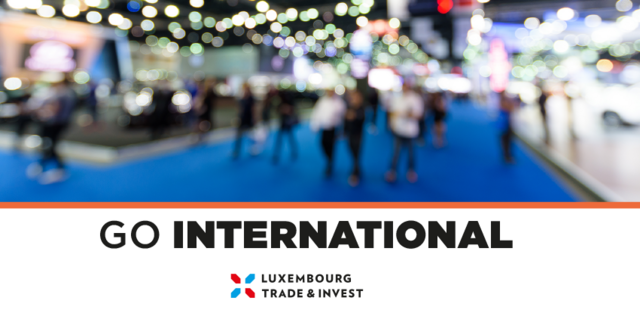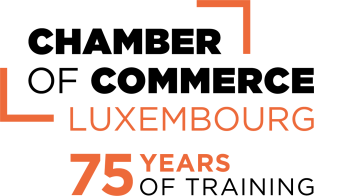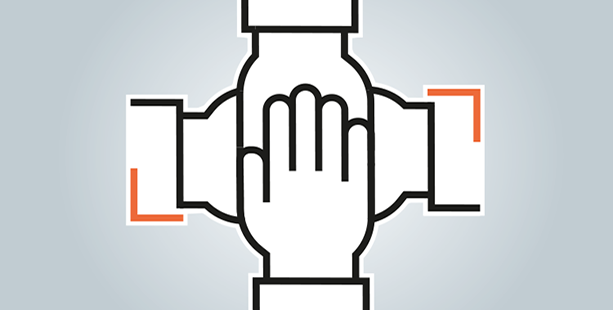
China’s Belt & Road Initiative

On 16 October 2017, the Chamber of Commerce of the Grand Duchy of Luxembourg and the China-Luxembourg Chamber of Commerce (CHINALUX) held their third event in the co-hosted event series on China’s Belt & Road Initiative (BRI)*, an intercontinental trade and infrastructure project focused on forging new economic corridors between China and Europe. The seminar entitled “China’s Belt & Road Initiative - ICT: Automated Driving in Luxembourg with 5G networks and satellite communications”, focused on opportunities for the ICT sector in Luxembourg. More specifically, the seminar emphasised the importance of telecom infrastructures as an essential element of the initiative. More than 110 participants attended the event.
In his welcoming speech, Jeannot Erpelding, Director of International Affairs at the Chamber of Commerce, outlined the recent key agreements reached with China in various fields. He referred to the “Belt and Road trade mission” to the People’s Republic of China in September this year and the Financial mission headed by Finance Minister Pierre Gramegna. He also highlighted the official visit to China of Luxembourg Prime Minister Xavier Bettel in June this year, accompanied by Pierre Gramegna and Minister of Sustainable Development and Infrastructure François Bausch, on the occasion of the 45th anniversary of diplomatic relations between China and Luxembourg. He noted in particular, that during the meeting with Premier Bettel and Chinese President, Xi Jinping, the latter stressed that both sides should deepen bilateral relationships under the framework of the BRI. Within this context, Mr. Erpelding emphasised the importance of the ICT, one of the leading sectors in Luxembourg, and introduced the strategic study on 'the third industrial revolution’. This study was initiated by the Chamber of Commerce of the Grand Duchy of Luxembourg and IMS Luxembourg, with the support of the Ministry of the Economy, with an aim to make the existing economic model more sustainable and interconnected for future generations, by making ICT, energy and transport as part of an intelligent network of connected things.
Jean-Marie Spaus, coordinator of the IPCEI initiative on High Performance Computing (HPC) and Big Data enabled Applications at the Ministry of Economy Luxembourg, introduced HPC and big data in Europe, referring to Luxembourg’s research and innovation policy. Mr. Spaus highlighted the BRI would encompass a vast network of railways, roads, pipelines, ports, as well as telecom infrastructures. He concluded by noting that this grand vision of the BRI will require close international collaboration across the public and private sectors.
Turning the focus to autonomous driving, Joost Ortjens, Head of the Automotive Sector Development at Luxinnovation, gave an overview of the Luxembourg automotive industry, and noted recent developments provided by self-driving cars and the Internet. Mr. Ortjens put forward the huge opportunities related to the automated driving sector within Luxembourg and the Greater-Region. He then introduced the main objectives of the new digital cross border test bed for connected and automated driving.
Paul Schockmel, Vice-President of Strategy, Business Development and Marketing at IEE, presented the megatrends for the global automotive industry. He outlined the challenges faced by the industry, from climate change, air quality, cost and profitability, and economies of scale, to changing consumer behaviour, global population growth and urbanisation. He then shared his thoughts on how he foresees the development of automated driving and the integration of big data processing due to autonomous vehicles generating a huge data flow. The industry will need to adjust to reflect growing global influences by infusing advanced technologies and establishing new cooperative models.
Karel Sotek, Product Line Manager at Huawei Technologies, introduced the 5G solution for automated driving in the light of recent developments and explained that autonomous driving requires more precise sensing information. Most interestingly, Mr. Sotek stressed the importance of global and local content. He also introduced the “European Pre-Deployment C&AD Project” initiated by the EU Commission and presented several solid use-cases and test results. Mr. Sotek concluded by presenting Huawei’s wireless roadmap for automated driving.
He was followed by Alexander Geurtz, VP, Strategic Business Innovation at SES, who introduced the satellite communications solutions for automated driving. Most importantly, Mr. Geurtz stated that automated driving provides a significant opportunity for satellite communications technology. The unique features of satellite communication (ubiquity, mobility, broadcast and security) can have a tremendous benefit on automated driving.
Then, Claude Rischette, Head of the frequencies department at Luxembourg's telecoms regulator, ILR, gave a presentation entitled: “Spectrum related trends towards C2C-CommunicaLons and 5G”. According to the ongoing 5G activities in Europe, 5G will play a key role in the development of Intelligent Transport Systems (ITS). He also noted that ITS was on the agenda of the next World Radiocommunication Conference (WRC-19) in 2019, one of the main objectives of the WRC-19 being to forster a global use of the frequency band for ITS that is already harmonised across the EU, the US, Canada and China.
Peter Sodermans, Senior Adviser Digital Lëtzebuerg - a Luxembourg Government initiative, Coordination Infrastructure group, moderated a panel of experts on the following topic: “Digital connectivity and automotive innovation: shaping a large-scale cross-border test bed for automated driving”. The panelists – Jean Schiltz, External Consultant Smart Mobility, Directorate Sustainable Technologies at the Luxembourg Ministry of the Economy, Karel Sotek, Claude Rischette and Alexander Geurtz participated in the debate.
Dirk Dewitte, President of CHINALUX, closed the event by highlighting some of the issues discussed over the meeting and invited the participants to join the next seminar on opportunities under the BRI for the Luxembourg finance sector, which will take place on 10 November.
A networking cocktail concluded the event bringing together all participants for an informal and stimulating get-together.
* Throughout the course of the China's Belt & Road Initiative (BRI) Event Series (referring to the less commonly used English translation "One Belt, One Road" initiative (OBOR)), CHINALUX and the Chamber of Commerce explore opportunities for Luxembourg to establish partnerships in the logistics, the ICT and the finance sectors. To hear about the upcoming events, please feel free to sign up to the CHINALUX newsletter (china-lux.lu/enewsletter) and stay tuned!
Sources : www.china-lux.lu




